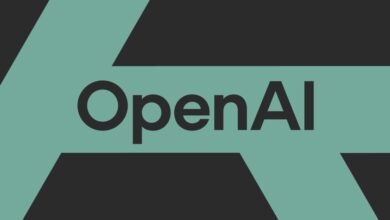AI’s Unchecked Speed: A Growing Crisis

▼ Summary
– GPT-5 and other frontier AI models like Claude Opus 4.1 are advancing rapidly, with OpenAI CEO Sam Altman calling GPT-5 a significant step toward AGI-like capabilities.
– AI’s rapid progress risks outpacing societal readiness, requiring urgent development of moral, civic, and institutional frameworks to manage its impact.
– While AI enhances productivity for some professionals, it threatens job displacement for others, highlighting the need for retraining and social protections.
– Historical parallels like the Industrial Revolution show societal disruption is inevitable, but AI’s faster scale demands quicker, more coordinated responses to avoid systemic fractures.
– Leaders must prioritize governance, bias audits, and human oversight in AI adoption, as unchecked automation risks reputational, regulatory, and strategic failures.
The rapid advancement of artificial intelligence is outpacing society’s ability to adapt, creating a critical gap between technological capability and institutional readiness. As cutting-edge models like GPT-5 and Claude Opus 4.1 push the boundaries of machine intelligence, experts warn that the societal impact could dwarf even the Industrial Revolution, but with far less time to prepare.
Demis Hassabis of DeepMind describes this shift as unfolding ten times faster than historical transformations. OpenAI’s Sam Altman suggests GPT-5 brings us closer to artificial general intelligence (AGI), raising urgent questions about governance, ethics, and economic stability. The challenge isn’t just innovation, it’s ensuring our social frameworks can withstand the upheaval.
Anthropic CEO Dario Amodei envisions AI compressing a century of progress into a decade, with breakthroughs in healthcare, economics, and governance. Yet he cautions that realizing these benefits demands coordinated effort to mitigate risks like job displacement and inequality. The promise of AI hinges on whether institutions can evolve fast enough to harness its potential without collapse.
The disconnect between technological empowerment and social inclusion is stark. While AI accelerates research and creativity for some, many workers face obsolescence without retraining or protections. Logistics planners, procurement specialists, and administrative roles risk being sidelined, widening the divide between those who adapt and those left behind.
History offers sobering lessons. The Industrial Revolution brought decades of exploitation before labor reforms and public health systems emerged. If AI’s disruption is indeed faster and broader, the window for proactive solutions is narrowing. Without deliberate action, the same patterns of inequity could repeat, but with far greater consequences.
Corporate leaders face their own crisis. Over 80% of organizations already deploy AI, yet fewer than a third provide training. The rush to automate risks prioritizing efficiency over human augmentation, especially during economic downturns. Establishing governance, bias audits, human oversight, and scenario planning, is no longer optional but a strategic imperative.
The political dimension is equally urgent. Hassabis acknowledges that distributing AI’s benefits fairly is a “political question,” yet regulatory frameworks lag far behind innovation. Unchecked market momentum embeds AI into critical services, healthcare, finance, legal systems, without public deliberation or safeguards. Trust erodes when technology outpaces democratic oversight.
Optimism isn’t enough. While AI could unlock clean energy, medical cures, and climate solutions, it could also deepen unemployment and inequality. Georgetown’s Cal Newport compares this phase to the early Industrial Revolution: benchmarks exist, but the full impact remains unclear. The next two years may define whether AI becomes a tool for collective advancement or systemic fracture.
The time for preparation is now. Waiting for crises to materialize will be too late. Flexible regulations, workforce retraining, and equitable safety nets must be prioritized today. The alternative, a fractured society struggling to catch up with its own creations, is not inevitable but grows likelier with every delay. The race isn’t just to build smarter AI; it’s to build a world ready to wield it wisely.
(Source: VentureBeat)




